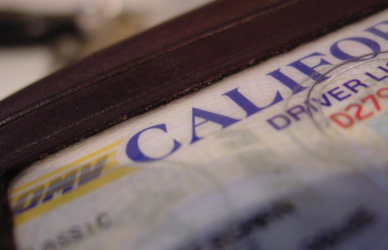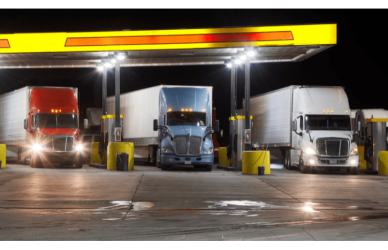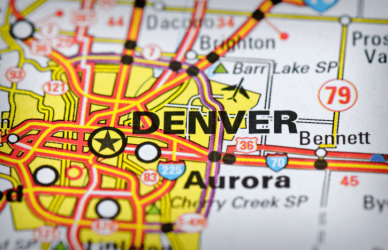Truckers driving in Washington State are one step closer to having the assurance of restroom access while on the job. Just last year, state legislators began addressing concerns that truck drivers often could not find facilities at ports, and now have unanimously voted to move a bill to the Senate requiring shippers and consignees to guarantee them these essential amenities. This legislation is thanks in part for the collaboration between organizations such as The Washington Trucking Associations, Owner-Operator Independent Drivers Association, and American Trucking Associations who have all been working together to ensure their members can work safely with dignity by providing this basic human need.
The bill, HB1457, defines a consignee as a business or person who takes delivery of property from a motor carrier in interstate or intrastate commerce.
Gov. Jay Inslee granted drayage truck operators greater access to safe restroom facilities across Washington last year, as he signed into law a bill requiring terminal operators to provide “a sufficient number of restrooms” in areas such as inside the gate and truck queuing lots. These measures could include fixed bathrooms and portable toilets, with policies allowing for leaving vehicles at reasonable times without posing an obvious health or safety risk. This update is part of ongoing efforts from state officials towards improving accessibility while ensuring respect for all commercial vehicle drivers navigating these terminals.
At the time, trucking organizations requested legislators add language including shippers and receivers in the requirement of providing restroom access. Despite their best efforts, they were unsuccessful in getting this language included in the final version.
Rep. Eric Robertson, R-Sumner, is sponsoring a revisiting of the one-year old law HB1457 to include shippers and consignees in its restroom access requirement for truck drivers – an issue near and dear to OOIDA Executive Vice President Lewie Pugh’s heart as he works daily towards solutions for this industry dilemma.
“Using a restroom is about the most basic thing that any person could ask for during their workday,” Pugh wrote in a recent letter to legislative leaders. “But unbelievably, professional drivers are frequently denied restroom access when they are picking up or delivering cargo.”
Shippers and consignees would be required to allow restroom access to a motor carrier delivering or picking up goods during normal business hours.
Restrooms in the bill are defined as being intended for use by customers or employees of the shippers or consignees.
Two conditions are included:
- The restroom must be in an area where providing access would not create an obvious health or safety risk to the user, and
- Allowing the user to access the restroom does not pose an obvious security, health, or safety risk to the shipper, consignee, or its employees.
A shipper or consignee would be permitted to have an employee accompany a motor carrier to the restroom.
Shippers or consignees that fail to follow the rule could face $125 fines when the violation occurs after a notice of correction is received. The Washington State Department of Health would be responsible for enforcement.
During a recent hearing with the House committee, Jeff DeVere of the Washington Trucking Association highlighted reasonable access – not enforcement– as key to facilitating HB1457.
Robertson, speaking on the House floor, noted that the increasing number of female truck drivers strengthens an urgent demand for legislative action.
To be at forefront of this issue and encourage other states accordingly, Pugh encourages lawmakers to make use of their opportunity given in HB1457 to take charge in establishing fairness nationally through transportation policies.
The bill has moved to the Senate Labor and Commerce Committee.
Source: Land Line








